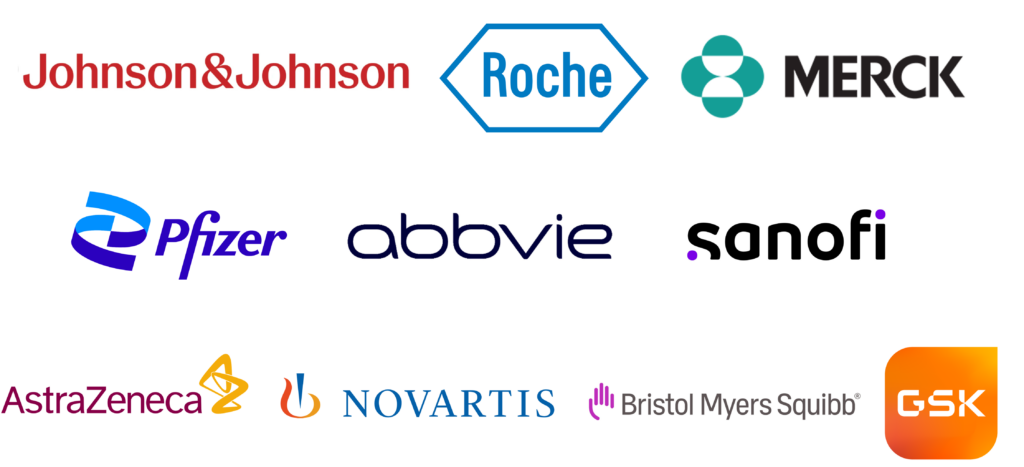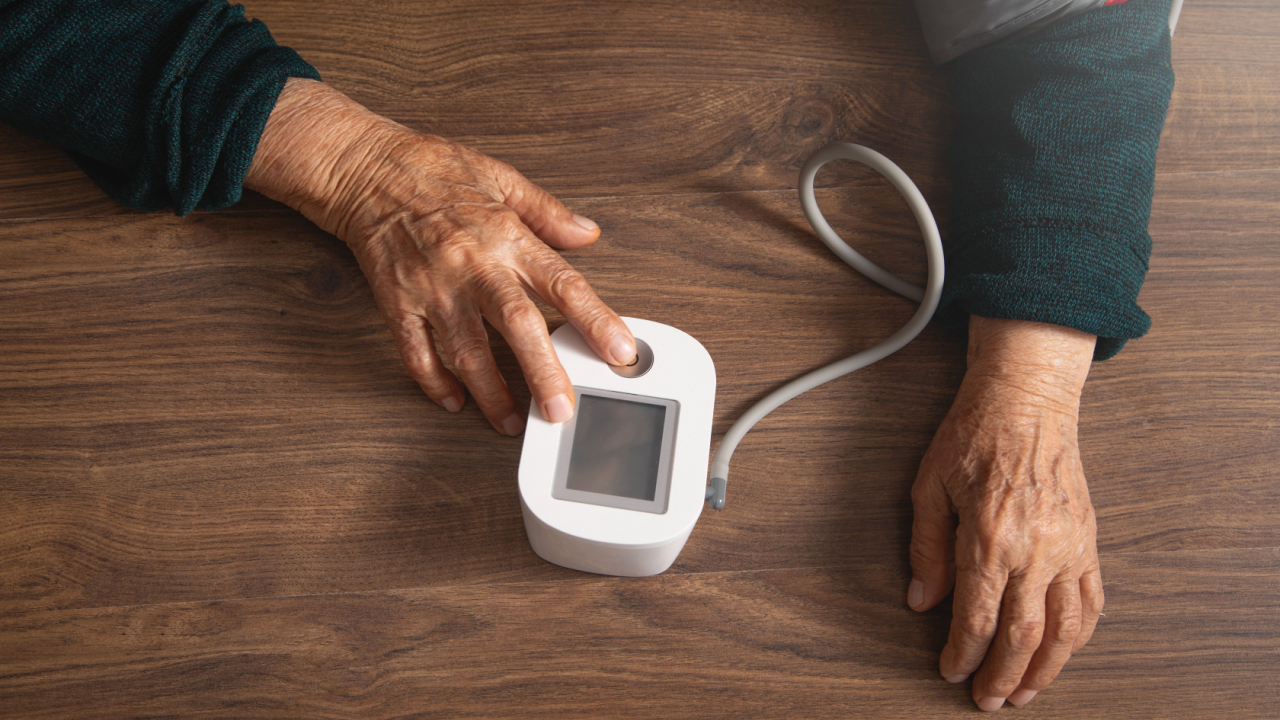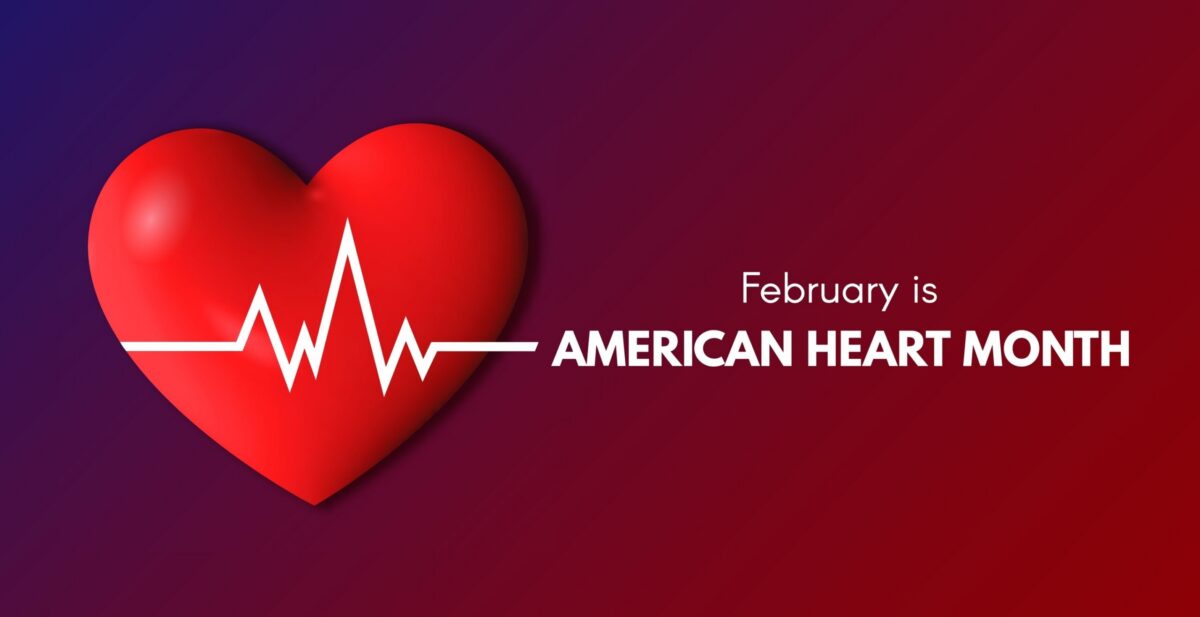The global pharmaceutical market has been expanding at an unprecedented pace. According to Statista, in 2023, the market was estimated to be worth about $1.6 trillion, an increase of over $100 billion compared to 2022.
This growth can be attributed to the rising cost of drugs, with prices for new drugs in the US having increased by 35 percent in 2023 compared to the previous year.
The top ten pharma companies in 2023 by revenue accounted for about 35 percent of the market value, with total earnings of $559.5 billion.
The top big pharma players have remained relatively consistent in their market positions over the past several years. Here is a look at the top ten pharma companies in 2024 based on 2023 revenue.
Note: When it comes to companies that report in foreign currencies, the conversion to US dollars uses the average annual exchange rates reported by the US Federal Reserve.
1. Johnson & Johnson
Revenue in 2023: $85.16 billion
J&J re-claimed the number one spot this year to become the world’s top pharma company in 2023, recovering from its slip to second place in 2022.
In 2023, the company experienced an annual growth rate of 6.5 percent. J&J’s pharma group, Innovative Medicine, generated $54.76 billion last year, up 4.2 percent from 2022. This increase was largely fueled by key products, such as Darzalex, Erleada and newly launched Carvykti and Tecvayli in oncology, as well as Stelara and Tremfya in immunology, according to the company’s 2023 annual report.
J&J’s immunology top seller Stelara remained strong, earning $10.86 billion in 2023 compared to $9.72 billion the previous year. Stelara has just one more year left on its patent exclusivity before biosimilars make their way into the space.
CAR T-cell therapy Carvykti earned $500 million in 2023 in its first year on the market. The multiple myeloma drug recently received US Food and Drug Administration (FDA) approval in earlier treatment settings. J&J is anticipating the treatment to reach heights of $5 billion per year.
J&J’s smaller medtech division brought in $30.40 billion, an increase of 10.8 percent year-over-year. This growth was partly attributed to the acquisition of Abiomed, which contributed significantly to the segment’s performance. Products like electrophysiology devices, contact lenses and surgical products were major drivers of sales in this area.
In its acquisitions, J&J also acquired antibody-drug conjugate (ADC) developer Ambryx and cardiac med tech Laminar along with more than 50 smaller, early-stage licensing deals and partnerships.
J&J also said it spent an all-time high of $15.09 billion on R&D in 2023, representing almost 18 percent of the year’s sales.
2. F. Hoffmann-La Roche Lt
Revenue in 2023: $65.36 billion
In 2023, F. Hoffmann-La Roche Lt, reported significant successes in the pharmaceutical and diagnostics sectors, rounding out a robust market performance for the year. The company’s total group sales reached 58.72 billion Swiss francs ($65.36 billion), with its pharmaceuticals division alone generating 44.61 billion Swiss francs ($49.66 billion).
In its 2023 annual report, Roche said declines in COVID-19 sales, namely the company’s rapid antigen tests, and the impact of biosimilar/generic erosion “more than offset” this year. Roche attributed the year’s success to a strong base business without COVID-19 products, which grew by eight percent owing to the high demand for the company’s newer diagnostics and medicines.
Roche also said its strong showing owes to a strategic focus on research and development, leading to promising medical advances and key partnerships and acquisitions.
The year’s top seller for Roche was Multiple sclerosis drug Ocrevus with 6.38 billion Swiss francs ($7.10 billion) in sales, a 13 percent increase from the previous year. First approved in 2016, the CD20-targeting monoclonal antibody received subsequent approval for relapsing-remitting and primary-progressive multiple sclerosis in 2017. Roche said there was continuously growing demand in both of these indications driven mainly by the US market, with growth stemming from both new and existing patients. Ocrevus also showed high uptake in countries including Germany, Italy and Brazil, according to the company’s annual report.
Eye disease medication Vabysmo was another highlight for Roche in 2023, earning 2.36 billion Swiss francs ($2.62 billion) in just its second year on the market. Roche said the drug has been one of the most successful product launches in the company’s history. Globally, it is estimated that 70 million people currently suffer from ‘wet’ age-related macular degeneration, diabetic macular edema or retinal vein occlusion.
Roche’s hemophilia A treatment Hemlibra came in second to Ocrevus with 4.15 billion Swiss francs ($4.62 billion), an increase of 13 percent from 2022, followed by oncology drug Perjeta at 3.77 billion Swiss francs ($4.19 billion), which remained steady compared to last year with just a one percent increase in sales. Perjeta in combination with Herceptin and docetaxel is a first-line treatment for HER2+ metastatic breast cancer.
Biosimilar erosion hit Roche’s cancer drugs Rituxan, Herceptin and Avastin in 2023, with sales of the three shrinking to a collective total of 4.83 billion Swiss francs ($5.38 billion). The trio was Roche’s main financial driver for several years, but last year, the drugs dropped to the ninth, tenth and 11th spots in the company’s product sales rankings. In 2023, Herceptin sales fell 16 percent and Rituxan 15 percent.
Roche also expressed hope for its two CD20xCD3 bispecific T-cell engager immunotherapies Columvi and Lunsumio that received FDA approval in 2023 and 2022, respectively. Columvi is approved for adults with relapsed or refractory diffuse large B-cell lymphoma (DLBCL) or large B-cell lymphoma (LBCL) arising from follicular lymphoma, while Lunsumio is approved for relapsed or refractory follicular lymphoma.
On the acquisitions front, Roche spent $7.1 billion to acquire Telavant for an anti-TL1A antibody, an inflammatory bowel disease candidate ready for Phase III trials.
The company also looked to expand its cardiovascular and metabolic diseases segments through the purchase of Alnylam’s mid-stage hypertension drug zilebesiran for $310 million upfront, and a $2.7 billion upfront buyout of GLP-1 drug developer Carmot Therapeutics.
Looking ahead, Roche also shared hope for its newly approved oncology drug Alecensa and investigational hopeful inavolisib in lung and breast cancer, respectively. While Alecensa, used in the treatment of non-small cell lung cancer (NSCLC), also holds promise for early breast cancer, inavolisib could be a medical breakthrough for a form of advanced, hard-to-treat breast cancer, said Roche.
3. Merck & Co
Revenue in 2023: $60.12 billion
Merck made the top three list with $60.12 billion in 2023, a slight increase of 1.4 percent from the $59.28 billion it earned in 2022.
In 2023, Merck officially became the proud owner of the world’s best-selling drug Keytruda, which knocked Pfizer’s COVID-19 vaccine Comirnaty from the top spot. Keytruda’s sales increased by 19 percent to $25 billion last year.
Merck had a strong year said Robert M. Davis, chairman and chief executive officer in a news release sharing the company’s 2023 annual report.
The company’s HPV vaccine Gardasil also had robust global demand in 2023, especially in China according to Merck, as well as public-sector buying patterns in the US. The vaccine earned $8.89 billion in 2023, an impressive increase of 29 percent over its 2022 earnings of $6.90 billion.
Merck’s third best-selling drug of the year was the type 2 diabetes pair of Januvia/Janumet with $3.37 billion in revenue. However, sales of the drug have been plummeting for the past couple of years as generic versions began to make their way into the market in 2022. Last year, sales of the drug nosedived by 25 percent compared to 2022. Issues of nitrosamine contamination during manufacturing have also plagued Januvia since 2022, compounding the decline in sales.
Merck also has a robust animal health division, which brought in $5.63 billion in sales in 2023, up one percent from last year. The segment includes parasiticides, vaccines, therapeutics and other technologies for managing the health of pets.
Record-breaking big pharma profits across the industry in the past couple of years have led to more investments in R&D. Merck said it made investments of over $30 billion in R&D in 2023 for the company’s “ongoing effort to discover, develop and collaborate to propel the next generation of impactful innovations.”
Merck also shared that it had more than 20 Phase III study starts in 2023, which included eight novel assets.
In the realm of acquisitions, Merck said it “augmented its pipeline” through acquisitions of Prometheus and Imago as well as collaboration agreements with Daiichi Sankyo and Kelun-Biotech in 2023. It also entered into a definitive agreement to acquire Harpoon Therapeutics, Inc., for $680 million to further diversity its oncology pipeline, according to the company.
In oncology, Merck also received several FDA approvals, including Keytruda plus ADC Padcev for the first-line treatment of adult patients with locally advanced or metastatic urothelial cancer. It also won approval for Welireg for advanced renal cell carcinoma, among others.
The FDA also accepted and granted Priority Review to Merck and Daiichi Sankyo’s Biologics License Application (BLA) for patritumab deruxtecan for locally advanced or metastatic epidermal growth factor receptor (EGFR)-mutated NSCLC, setting a Prescription Drug User Fee Act (PDUFA), or target action, date of June 26, 2024.
4. Pfizer
Revenue in 2023: $58.50 billion
Pfizer was edged out of the number one spot this year due to a steep decline in demand for its COVID-19 vaccine Comirnaty and antiviral Paxlovid.
Pfizer had a massive drop in sales of its COVID-19 products as the world looks to be out of the pandemic and transitioning to cyclical waves of the infection during the fall/winter seasons.
The anticipated COVID slump led to a 41 percent decrease in global sales over the previous year, with total 2023 revenues registering in at $58.50 billion compared to 2022’s record-breaking $100 billion year.
Excluding COVID-19 products, Pfizer is still going strong as the company had an operational revenue growth of seven percent, which was “solidly in line with our expectations for non-COVID-19 product revenues,” said Pfizer in its 2023 annual report.
Despite the COVID falloff, Comirnaty was still Pfizer’s lead revenue generator in 2023 at $11.22 billion, accounting for 19 percent of Pfizer’s revenue for the year.
Pfizer’s BMS-partnered blockbuster blood thinner Eliquis was Pfizer’s second highest revenue generating drug for 2023 with $6.75 billion in sales.
In 2023, Pfizer also celebrated its 175th birthday, standing proud of its contributions to science over these years.
Pfizer said despite the COVID slump, the company is proud of its achievements over the course of 2023, which included treatment of around 618 million patients around the world with Pfizer medicines and vaccines and receiving a record number of FDA approvals for new molecular entities.
Notable approvals included that of the company’s RSV vaccine Abrysvo, one of the world’s first RSV vaccines. It hit the market facing off against GSK’s Arexvy, which was approved just a few weeks before Abrysvo in May 2023. Arexvy ended up taking an early lead in sales over Abrysvo in its first year. Abrysvo brought in $890 million last year, which CEO Albert Bourla expressed disappointment over.
Both Abrysvo and Arexvy are approved for adults 60 years of age and older, with Abrysvo having secured a second approval for maternal immunization a few months after its initial approval.
On the vaccine front, Pfizer’s 20-valent pneumococcal conjugate vaccine Prevnar received approval for infants and children last year.
Other notable FDA approvals included Zavzpret, the first and only calcitonin gene-related peptide (CGRP) receptor antagonist nasal spray for the acute treatment of migraine, and alopecia drug Litfulo.
Pfizer’s Elrexfio also nabbed approval in multiple myeloma, which marked Pfizer’s first approval for any drug in the indication.
The company is continuing to bolster its oncology division. In 2023, Pfizer acquired Seagen in a mammoth $43 billion buyout, which the company said was “a critical step in our ambition to end cancer as we know it.” The Seagen deal came with 25 approved cancer medicines across more than 40 indications, with nine being potential blockbusters or billion-dollar-per-year drugs.
5. AbbVie
Revenue in 2023: $54.32 billion
With $54.32 billion in global sales in 2023, AbbVie had a strong showing last year as the decade-old company (after cutting off from Abbott) continues to hold its own amongst the biggest pharma players in the market.
In its 2023 annual report, AbbVie said 2023 was another “outstanding” year, particularly from the company’s “non-Humira growth platform.” Humira has been the world’s best-selling drug for several years before biosimilar competition ended its reign.
As a result, global net revenues from AbbVie’s immunology portfolio were $26.14 billion, a decrease of 9.6 percent, due to Humira biosimilar competition, the company said. Overall, AbbVie said it had a full-year sales decline “for the first time in its existence” as global sales fell six percent.
Global Humira revenues of $14.40 billion decreased by around 32 percent on both a reported and operational basis. US Humira sales decreased by a whopping 34.7 percent for a total of $12.16 billion. Internationally, Humira’s net revenues were $2.24 billion, a decrease of 14.3 percent on a reported basis or 11.8 percent on an operational basis.
AbbVie was prepared for the end of the Humira era, shifting focus to its other immunology drugs Skyrizi and Rinvoq, which brought in $7.76 billion and $3.97 billion in global net sales, respectively last year. Although they weren’t able to make up for Humira’s losses, compared to 2022, Skyrizi sales grew 50.3 percent while Rinvoq was up 57.4 percent year over year, which points to an encouraging outlook for the coming years.
AbbVie’s oncology portfolio revenues checked in at $5.92 billion, a decrease of 10.1 percent. Of the company’s main oncology drugs, J&J co-signed Imbruvica took a hit in 2023, with revenues down by 21.3 percent at $3.60 billion, while Venclexta’s net revenues were $2.29 billion, an increase of 13.9 percent. Imbruvica’s decline is attributed to competition from BeiGene’s Brukinsa.
AbbVie’s neuroscience and aesthetics portfolios were $7.72 billion and $5.29 billion, respectively, in 2023.
AbbVie made two major multi-billion-dollar acquisitions in 2023. The first was its $10.1 billion purchase of ImmunoGen to acquire its “flagship” cancer therapy Elahere, a first-in-class ADC approved for platinum-resistant ovarian cancer (PROC). AbbVie said the “acquisition accelerates AbbVie’s entry into the solid tumor space” and also boosts the company’s oncology pipeline with the addition of several promising next-generation ADCs.
AbbVie also acquired Cerevel Therapeutics in an $8.7 billion transaction for Cerevel’s neuroscience pipeline of multiple clinical-stage and preclinical candidates with potential across several diseases including schizophrenia, Parkinson’s disease and mood disorders.
6. Sanofi
Revenue in 2023: $46.59 billion
Sanofi’s global revenue in 2023 registered at 43.07 billion euros ($46.59 billion), comparable to its 43.00 billion euros ($45.21 billion) in 2022.
Sanofi’s biggest revenue generator remains Regeneron-partnered immunology drug Dupixent. Last year, it brought in 10.72 billion euros ($11.59 billion) in sales for Sanofi, a 34.0 percent increase over last year, accounting for around a quarter of Sanofi’s revenue in 2023.
Dupixent has been accumulating approvals over the years and currently has five in different indications. This year, Sanofi is hoping for a potential green light in chronic obstructive pulmonary disease (COPD) that would drive even greater revenue growth.
Sanofi’s Fabry disease therapy Fabrazyme, first approved in 2003, grew 11.2 percent globally with total earnings of 991 million euros ($1.07 billion) for the year.
Sanofi’s multiple sclerosis stalwart Aubagio began to be hit with generics in 2023, which led to a 52.6 percent plunge in sales to 955 million euros ($1.03 billion).
Sanofi’s general medicines sales dropped 7.1 percent to 12.38 billion euros ($13.39 billion), while vaccine sales grew 8.3 percent to 7.47 billion euros ($8.08 billion).
Sanofi is looking to build an “immunology powerhouse” it said in its 2023 annual report. This portfolio will be powered by new launches, Dupixent and vaccines.
Recent launches include Provention Bio-partnered type 1 diabetes drug Tzield, which was approved in 2022, and Sanofi and AstraZeneca’s new RSV antibody for infants, Beyfortus, which brought in 547 million euros ($591.69 million) last year. Supply issues early in its launch led to some questions but Sanofi is confident of blockbuster sales this year as uptake increases.
Sanofi’s new hemophilia A med Altuviiio, approved in February 2023, also had a decent start with 159 million euros ($171.99 million) last year.
In December, Sanofi shared its “pipeline-in-a-product” offerings that it is betting on, which include amlitelimab, frexalimab and SAR441566. The company believes it can generate 5 billion euros ($5.41 billion) or more in peak sales as it looked to convince investors after announcing a consumer spinoff that led to company shares plummeting.
Sanofi says its recent and future launches will bring in 10 billion euros ($10.82 billion) annually by 2030.
Sanofi’s consumer healthcare group generated 5.18 billion euros ($5.60 billion), an increase of 6.3 percent over last year. The company is in the midst of separating the division, which could happen later this year.
7. AstraZeneca
Revenue in 2023: $45.81 billion
AstraZeneca had a strong year with $45.81 billion in total revenue, an increase of three percent over last year’s $44.35 billion. The company reported in its 2023 annual report that excluding COVID-19 medicines, total revenue increased by 13 percent.
Encouraged by the continued growth, and reaching the $45 billion revenue goal that the company set a decade ago, AstraZeneca CEO Pascal Soriot announced the company’s next ambitious target of $80 billion in revenue by 2030. Part of the plan to hit this goal includes launching 20 new medicines by 2030, “many with the potential to generate more than $5 billion in peak year revenues,” said Soriot.
In 2023, total company revenue in the US increased by six percent in 2023, in Europe by ten percent and by two percent in emerging markets. Across the rest of the world, revenues fell by 14 percent but excluding COVID-19 products, they increased in all regions of the world.
With official discontinuation of the company’s COVID-19 vaccine worldwide, with usage halted in the UK in 2021, it came to no surprise that AstraZeneca’s vaccines & immune therapies revenue fell by a whopping 72 percent.
Outside of that segment, AstraZeneca’s other divisions all posted increases in 2023. Its rare disease portfolio increased by ten percent, oncology increased by 19 percent, cardiovascular, renal & metabolism by 15 percent and respiratory & immunology by seven percent.
AstraZeneca’s top seller in 2023 was SGLT2 inhibitor Farxiga at almost $6 billion in total sales. The drug is used in the treatment of type 2 diabetes, chronic kidney disease (CKD) and heart failure.
After Farxiga, AstraZeneca’s oncology portfolio continues to be its largest driver of revenue and growth. The company’s EGFR-mutated lung cancer treatment Tagrisso continued to be the second-biggest player with $5.80 billion in revenue and nine percent growth at unchanged currencies.
Combined alliance sales of Daiichi Sankyo-partnered HER2-targeting ADC Enhertu more than doubled to $2.57 billion in 2023. The partners’ next ADC offering datopotamab deruxtecan (Dato-DXd) yielded positive Phase III trial data in NSCLC. The companies have filed for approval in nonsquamous disease with a December 20, 2024, FDA target decision date.
AstraZeneca’s immuno-oncology duo Imfinzi and Imjudo together brought in $4.24 billion, an increase of 55 percent year over year. Its expansion in liver cancer has been a major growth driver.
AstraZeneca also boasted 282 successful on-time launches in 2023, 56 “regulatory events” that included submissions or approvals in major markets and an overall supply performance of 99 percent with no “critical observations” reported from 49 external inspections.
Among these was the dual inhaler Airsupra, which was approved as the first rescue medication for the as-needed treatment or prevention of asthma attacks.
AstraZeneca and Sanofi also shared FDA approval for their RSV antibody Beyfortus, which earned $122 million for AstraZeneca, including a milestone payment from Sanofi.
The British drugmaker is looking to continue bolstering its RSV portfolio as it purchased RSV vaccine developer Icosavax for $800 million.
AstraZeneca struck another major deal in its $1 billion acquisition of Gracell Biotechnologies for a B cell maturation antigen (BCMA) and CD19 dual-targeting autologous CAR-T therapy currently in Phase Ib/II testing in the US in multiple myeloma.
Other acquisitions included a buyout of China’s Ecogene for $185 million to acquire an oral GLP-1 agonist, which AstraZeneca believes has promise to be used in combination with other therapies, including Farxiga, for both diabetes and obesity.
8. Novartis
Revenue in 2023: $45.44 billion
Novartis’ 2023 total earnings amounted to $45.44 billion, up 7.7 percent in reported terms from 2022’s $42.21 billion, and ten percent measured in constant currencies (cc) to remove the impact of exchange rate movements.
After spinning out its generics and biosimilar division Sandoz last year to become a more “focused innovative medicines company,” according to company leaders in Novartis’ 2023 annual report, sales initially fell but recovered to grow and surpass its 2022 sales. Sandoz posted $9.65 billion in net sales.
Novartis’ biggest assets last year were heart failure and hypertension blockbuster Entresto and multiple sclerosis injection Kesimpta with sales passing $6 billion and $2 billion, respectively. Kesimpta sales almost doubled from the previous year, having reached over 85,000 patients across 87 countries, according to Novartis.
The company’s oncology portfolio also continues to impress investors, particularly radiotherapy Pluvicto and CDK4/6 inhibitor Kisqali, which both experienced growth last year, hitting total global sales of $980 million (up 261 percent cc) and $2.08 billion (up 69 percent cc) respectively. They also had significant data readouts last year that demonstrate their potential in early breast cancer and earlier lines of treatment for advanced prostate cancer, respectively.
After a preliminary long-term readout of Pluvicto as an earlier line treatment for prostate cancer showed a preliminary negative trend in overall survival, Novartis held out for longer-term data before filing with the FDA. It was a worthwhile wait as updated final data showed a reversal to a positive survival trend. Following this, Novartis announced in April that it will file Pluvicto for pre-chemo approval in the second half of 2024. The therapy is currently approved for patients who have failed chemotherapy.
Approved in 2022, temporary shortages hit Pluvicto, which led to disappointing sales in the fourth quarter. Novartis said to address the shortage, the company opened a new radioligand therapy (RLT) facility in the US, after the FDA cleared several of them, which is helping more than double weekly production capacity.
Among approvals, Novartis received FDA approval for the complement factor B inhibitor Fabhalta, which is a rival to AstraZeneca’s C5 inhibitor franchise. Analysts at Jeffries have predicted Fabhalta to become a $3.6 billion product at peak sales.
Novartis’ Leqvio, a PCSK9-targeted commercial siRNA product, is in launch phase and earned $355 million in 2023.
In the acquisitions arena, Novartis acquired Chinook Therapeutics for $3.2 billion last year with the endothelin A receptor inhibitor atrasentan being the primary asset in the deal. A subsequent top-line Phase III readout has demonstrated the candidate successfully reached its primary goal in IgA nephropathy.
Novartis also purchased siRNA-focused DTx Pharma for $500 million upfront, which includes a preclinical therapy for an inherited neuromuscular disorder.
RNA, radioligand and cell and gene therapy are three technology platforms that Novartis is focused on besides biologics and traditional small molecules.
9. Bristol Myers Squibb
Revenue in 2023: $45.00 billion
Bristol Myers Squibb (BMS) also had a strong year in 2023 with $45.00 billion in net global sales, reflecting a slight decrease of two percent compared to 2022’s revenue.
In its 2023 annual report, the company reported that the company’s new product portfolio posted $3.59 billion in revenues, representing a 77 percent year-over-year increase.
BMS said in 2023, the company harnessed its “strong financial foundation to invest more than $9.3 billion in R&D” and pursue partnerships, collaborations and transactions, as well as return of capital to shareholders.
The drugmaker said it doubled the number of assets in or entering registrational stage from six to 12.
In 2023, BMS also secured some noteworthy regulatory approvals, including the approval of oncology drug Augtyro in the US and additional approvals for several others, including Sotyktu, Breyanzi, Camzyos and Opdivo.
Blood thinner Eliquis remained BMS’ top seller having earned $12.21 billion in global sales, up four percent from 2022. In the US alone, revenue grew ten percent to $8.59 billion.
Eliquis has been named among the first ten drugs that will undergo price negotiations in the US under the Inflation Reduction Act (IRA), with new pricing set to take effect in 2026. On a fourth-quarter earnings call, BMS’s chief commercial officer Adam Lenkowsky said the company is anticipating Eliquis’ period of significant growth to end in 2025.
BMS was also recently put in the hot seat by US Senator Bernie Sanders for the high prices of some of its multi-billion-dollar drugs, including Eliquis. Sanders summoned BMS along with fellow big pharmas J&J and Merck to a senate Health, Education, Labor and Pensions (HELP) committee hearing to testify about the high cost of some of the companies’ drugs in the US compared to other countries.
In the US, Eliquis’ list price is $7,100 a year while it costs $900 in Canada. According to a Yale University study, the drug costs approximately $18 to manufacture.
The blockbuster run of BMS’s oncology stalwart Revlimid is also nearing an end after hitting its patent cliff. As a result, sales dropped 39 percent to $6.10 billion last year.
BMS’s other big oncology driver Opdivo brought in $9.01 billion in 2023 sales and hit $10 billion when combined with the 145.5 billion Japanese yen (around $1 billion) that Ono Pharmaceutical reported for the PD-1 inhibitor.
BMS’s CAR-T therapy Breyanzi earned $364 million in 2023 global sales. After Gilead Sciences’ competitor Yescarta got the FDA nod for a new manufacturing process that shortens its turnaround time to 14 days, BMS is expanding its manufacturing to keep up.
On the other hand, sales of BMS’s CAR T-cell therapy Abecma declined again in 2023, dropping 20 percent to $100 million during the fourth quarter, for a 2023 total of $472 million. In the US, annual sales were down 21 percent.
After some questions over safety, the FDA approved Abecma’s move from a third- to fifth-line treatment for melanoma in April. Despite concerns over early patient deaths flagged in submitted trial data, an FDA advisory panel had voted 8-3 in favor of the data, citing an overall positive risk-benefit. At the same time, Johnson & Johnson and Legend Biotech CAR T-cell rival Carvykti also got an FDA nod as a second-line multiple myeloma treatment.
In its merger and acquisition expenditures, BMS made some big purchases in 2023 that included $14 billion for neuroscience biotech Karuna Therapeutics, $4.1 billion for radiopharmaceutical company RayzeBio and $5.8 billion for Mirati Therapeutics.
BMS received schizophrenia hopeful KarXT from Karuna, FDA-approved KRAS inhibitor Krazati from Mirati and a lead candidate from RayzeBio that is on track to complete Phase III trials in 2025 for patients with gastroenteropancreatic neuroendocrine tumors. With a decision date of September 26, 2024, KarXT is one of the year’s most anticipated FDA approvals, as industry analysts are predicting it to reach $2.8 billion in sales.
10. GSK
Revenue in 2023: $37.73 billion
GSK’s 2023 revenue amounted to 30.33 billion pounds ($37.73 billion), an increase of 3.4 percent from last year’s 2022 revenue of 29.32 billion pounds ($36.16 billion).
Not including COVID-19 products, GSK’s revenues increased by 14 percent to 30.13 billion pounds ($37.49 billion).
Sales were split fairly evenly across the company’s vaccines, special medicines and general medicines segments at 9.86 billion pounds ($12.27 billion), 10.24 billion pounds ($12.74 billion) and 10.22 billion pounds ($12.71 billion), respectively. All three areas were up in sales compared to last year (by 25 percent, eight percent and five percent, respectively).
In the vaccines segment, GSK’s shingles vaccine Shingrix was a major growth driver with 3.45 billion pounds ($4.29 billion) in sales in 2023. Last year, it was approved in Japan for at risk individuals 18 years of age and older.
GSK also reported good progress in its respiratory segment with market-leading IL-5 antagonist Nucala, which made 1.66 billion pounds ($2.06 billion) in 2023, up 18 percent from 2022. Lupus treatment Benlysta was also a major contributor in 2023 bringing in 1.35 billion pounds ($1.68 billion), up 19 percent from 2022.
PARP inhibitor Zejula was up 15 percent in sales last year, ending the year with 523 million pounds ($650.61 million).
Overall, sales from new products launched since 2017 contributed more than 11 billion pounds ($13.68 billion), said GSK in its 2023 annual report.
On the R&D end, GSK shared that it had 71 vaccines and medicines in its pipeline, 18 in Phase III/registration and four major approvals in 2023.
Among the approvals was a monumental one with Arexvy, the world’s first RSV vaccine. The vaccine took off to a strong start shortly after its May 2023 approval, garnering 1.2 billion pounds or $1.5 billion in 2023, surpassing the $890 million posted by Pfizer rival Abrysvo that was approved just a few weeks after Arexvy.
GSK also won approvals for its long-acting preventative HIV treatment Apretude, which was approved as the first and only HIV prevention option in Europe.
The company’s JAK inhibitor Ojjaara was approved in the US, European Union (EU) and UK as the first and only treatment for both newly diagnosed and previously treated myelofibrosis patients with anemia. It earned 33 million pounds ($41.05 million) in its first year. And Jemperli was approved in the US, EU and UK as the first frontline PD-1 inhibitor, in combination with chemotherapy, for patients with dMMR/MSI-H primary advanced or recurrent endometrial cancer.
Among partnerships and acquisitions, GSK in-licensed two ADCs targeting B7-H3 and B7-H4 from Hansoh Pharma in China.
GSK’s biggest deal was with Bellus Health, which it dished out $2 billion for in pursuit of Phase III P2X3 antagonist camlipixant for chronic cough. The drug will rival Merck’s gefapixant, which is facing regulatory hiccups.
If you want your company to be featured on Xtalks.com, please email [email protected].











Join or login to leave a comment
JOIN LOGIN